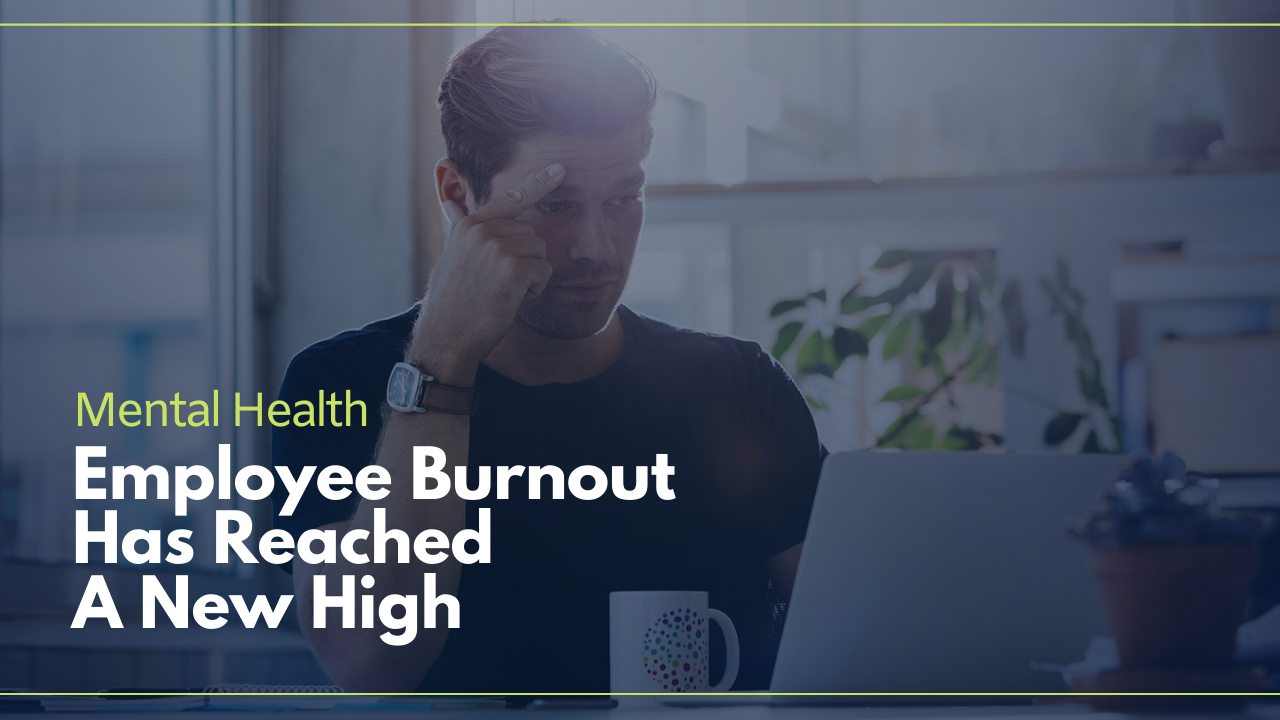- The coronavirus pandemic has had a huge impact on the wellbeing of workers across the world.
- People are finding new ways or revisiting tried-and-trusted methods to help ease anxiety, regain focus and feel more relaxed.
- From listening to birdsong to starting a journal, here are 7 ways to brighten your day.
The pandemic is having a huge impact on how we live and work. Living with a daily invisible threat, stay-at-home orders, workplace restrictions, and being separated from friends and family are all taking a heavy toll.
While we continue to adapt our lives to co-exist with this ever-changing situation, people are finding new ways or revisiting tried-and-trusted methods to help ease anxiety, regain focus and feel more relaxed. From lunchtime walks to morning mindfulness exercises, sometimes just a short burst of non-work-related activity can help calm the mind.
If you’re looking for something a little different, here is a list of 7 wellness ideas to help brighten your day:
1. Listen to birdsong
Spending time in nature has positive effects on human wellbeing. Now, researchers at the California Polytechnic State University have discovered that hearing birdsong — even on a recording — can increase happiness and wellbeing. The research, which involved playing birdsong to passing hikers, suggested that the sound of birdsong combined with people’s positive perception of biodiversity increases feelings of wellbeing.
If you don’t have chirpy birds living outside your office window, simply look up ‘birdsong’ on a music app like Spotify. There are albums full of twittering birds, which creates a happy Spring-like backdrop on even the gloomiest of days.
2. Spend time with your pets
According to Dr Margit Gabriele Muller, a leading vet and author, a pet’s unconditional love offers a profound, calming, and comforting companionship. Pets can help you to feel less lonely, cope with everyday life and give you purpose, which in turn can help ease anxiety and stress. Plus, walking your dog (or someone else’s dog, if you don’t have your own) is great exercise which helps to lower blood pressure, burn fat and improve circulation, among other physical health benefits.
3. Make your home your haven
Lately, we’re spending a lot more time in our homes than normal. If your personal space is beginning to feel stale, or cluttered, why not refresh your design and decor? The much loved Scandi-style isn’t just pleasing on the eye — it has a number of happiness-boosting secrets as part of a holistic approach to wellbeing.
Choose comforting accessories, make the most of natural light, add easy maintenance houseplants, introduce sustainable materials and choose calming colours.
“A truly Scandi interior uses only neutral colours, but if this feels too minimalist for your style, add pops of colour through accessories and soft furnishings,” says Catharina Björkman, lifestyle expert at Contura. “Greenery and plants look stylish and help with better air quality.”
4. Pick the right plants
As Björkman noted, indoor plants don’t just look good — they offer a host of wellness-boosting benefits too. Plants improve air quality by producing oxygen and removing pollutants like formaldehyde, benzene and ammonia. And for the same reason that birdsong lightens our mood, plants help us feel better simply by being close to nature.
Some particularly good choices are tradescantia, marantas (prayer plants), echeveria succulents, cast iron plant, the low-light loving Guiana chestnut, lucky bamboo, boston fern, and the fast-growing pothos.
Read more about the best low-maintenance plants for indoor spaces.
5. Start journaling
Journaling is, quite simply, keeping a journal. Adventurers might keep journals or blogs to record places they’ve visited, but journaling in its current fashion is a way to get your thoughts and feelings out into the open, down on paper. Yes — these are paper journals, not blogs or social media posts.
“It’s simply writing down your thoughts and feelings to understand them more clearly. And if you struggle with stress, depression, or anxiety, keeping a journal is a great idea. It can help you gain control of your emotions and improve your mental health.”
This article from the University of Rochester Medical Centre, Journaling for Mental Health, suggests that journaling can help manage anxiety, reduce stress and cope with depression, as it provides a way to express your emotions, track symptoms, and prioritise fears and concerns.
Start with your own notebook or, if you need a little guidance, buy a pre-made journal with writing prompts or suggestions, such as ‘What made you smile today?’
6. Dark mornings? Wake up with a sunrise alarm
If you’re not much of a morning person, try a sunrise alarm clock. Around half an hour before your wake-up time, the clock begins to glow and steadily increases in light intensity, similar to a morning sunrise. By the time your alarm sounds, your room will be filled with a very real sense of daylight, which makes waking up — and getting up — a whole lot easier.
7. Take a virtual health retreat
Even if we can’t be there in-person, an online health retreat is the next best thing. Take a carbon-free trip anywhere in the world and take part in live video consultations, private classes, meditation, and even healthy eating recipes to help you feel better, inside and out.
For inspiration, this article lists 15 online health retreats taking place in 2021, ranging from the Ananda Spa in the Himalayas, to a chateau in the south of France offering yoga and meditation classes via Zoom.
















